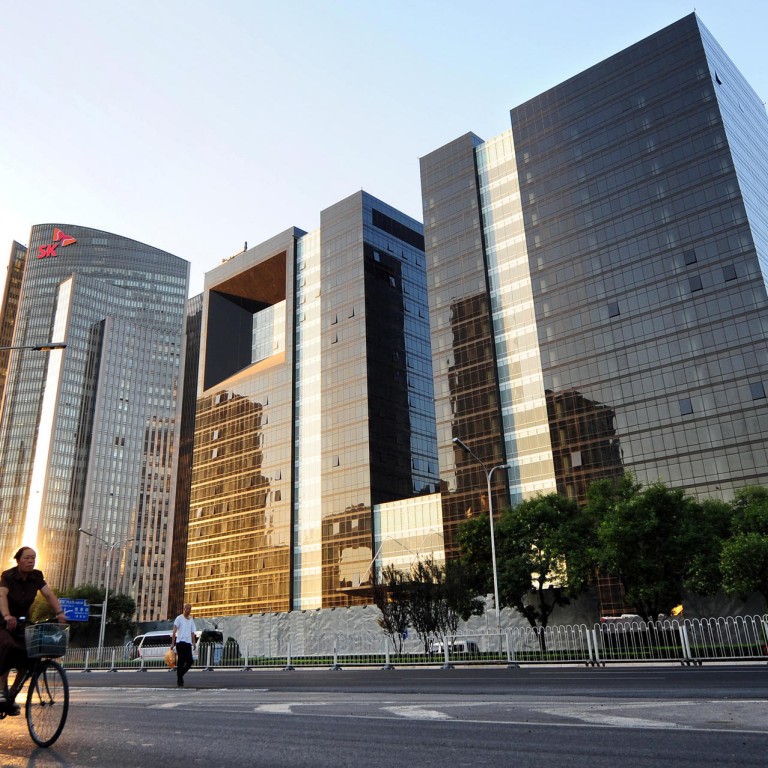
Beijing feels office space crunch as vacancies shrink
Vacancies in top properties fall below 5 per cent as the capital's shift from industrial to service-based economy gobbles up free offices
Beijing needs more office space to meet its economy's growing reliance on services, a real estate consultancy said.

"It's clear that Beijing needs a bigger workspace supply to support the city's future economic growth," said Julien Zhang, a managing director of Jones Lang LaSalle Northern China and Beijing, as the firm issued a research report yesterday.
The influx to the capital in recent years of firms from multiple sectors, especially services, has left most office buildings fully occupied and vacancy rates very tight elsewhere, the report said.
"The short supply of workspace has become significant as Beijing transforms to an economy dominated by the service sector," said Liu Hongyu, director of Tsinghua University's Real Estate Research Centre.
The capital would take the lead in a new mode of development as the central authorities attached greater importance to greener, more sustainable development than pure growth, he said.
The city has seen the number of service sector employees rise from 6.5 million in 2007 to 8.2 million last year, the report said.
According to official data, Beijing ranked last among the 31 provinces and self-governed municipalities for gross domestic production growth in 2011, and only just ahead of Shanghai last year.
Marcos Chan, head of research for Jones Lang LaSalle Beijing and North China, said Beijing's economy was being transformed from one dominated by secondary industries to one focused on services.
"I don't think this will necessarily slow growth, because the process also involves more investment in the green industries," he said. "For example, you have to renovate and improve a lot of buildings and factories."
Future development of the capital city will be driven mainly by an expanding the belt of offices in and around the city centre, developing satellite townships and upgrading infrastructure, the report said.
It singled out emerging areas such as the Olympics area and Changping to the north, Wangjing and Shunyi in the northeast, Tongzhou in the east, and Fengtai and Fangshan in the south.
Beijing needed to develop more satellite townships to decentralise and ease the high demand for offices in the core areas now, it said.
Extending the subway system and further developing the airport and other infrastructure would also be key as the city's population and commercial activity grow.

